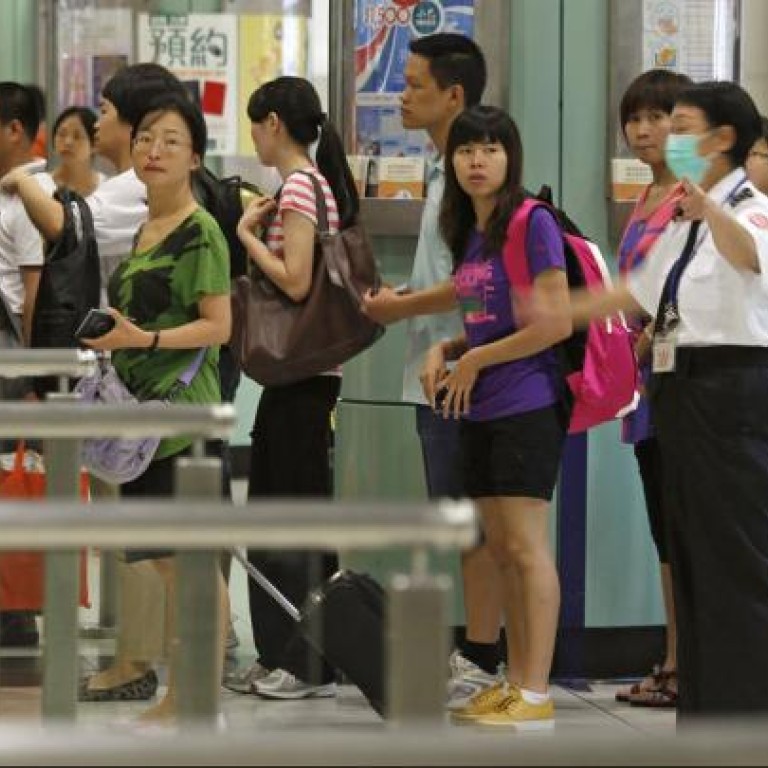
Expect 'overwhelmed' Hongkongers to find voice at Sunday's election
Christine Loh says Hong Kong people's disquiet over mainland influence on society is likely to shape the results of Sunday's Legco election
Can Hong Kong take more visitors? The answer depends on who you ask. The truth is that there are limits and, arguably, Hong Kong has reached its capacity - and not just physical capacity, either. The ballot box will give us an important answer on Sunday.
Hong Kong received nearly 42 million visitors in 2011, 28million of whom came from the mainland, with 14.5million day visitors.
It is easy to understand why concerns have been raised about the mainland decision to issue multiple re-entry permits for Shenzhen's non-permanent residents to visit Hong Kong. As part of the wider plan, migrants from five other mainland cities also became eligible for single-entry permits. People fear it will put a lot more pressure on the city's infrastructure, as well as push up prices of goods and services for local residents.
On the one hand, Hong Kong is part of China and mainlanders should be able to travel here much more freely. On the other, Hong Kong people fear their city and their community of only seven million could be overwhelmed. This disquiet of being "overwhelmed" comes in various forms - from the physical side to the economic and political aspects.
Mainlanders may see Hong Kong as still resisting "one country" but there are legitimate reasons for our anxiety. At a physical level, Hong Kong people want their city to improve. They worry it cannot be done if infrastructure is constantly being built to accommodate visitors. Overcrowding will remain a constant problem.
At an economic level, the large demand for goods and services from visitors pushes up prices for locals. Many people just don't buy the argument that more tourism is good when locals get the raw end of the deal. Large businesses may benefit but individuals don't. A strand of the economic argument relates to whether Hong Kong's airport needs a third runway. Some say it is not needed because the city should let regional airports take the business of short-haul flights from the mainland while Hong Kong focuses on long-haul business.
At a political level, the "two systems" are fundamentally different, and, even though united by "one country", differences still need to be negotiated and accommodated, such as the evolution of Hong Kong's constitutional system towards universal suffrage to elect the chief executive and legislature. A good example of Hong Kong people's fear is the outrage over national education, with parents and students equating it with "brainwashing".
Mainland authorities have now halted the issuing of the entry permits for three weeks, supposedly to allow the authorities on both sides of the border to smooth arrangements. This cools local debate at a critical time as voters go to the polls in the Legislative Council election.
Opposition forces can do surprisingly well by capitalising on issues that relate to the fear of being overwhelmed. The national education controversy will probably have a major impact. It seems too late for the government to also introduce a cooling-off period. It will have to accept the consequences.

